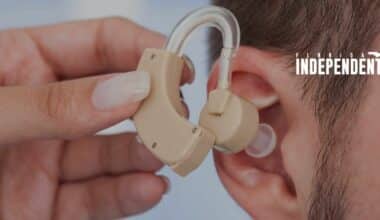Owning your first appliances is a rite of passage. Yet, it can be a confusing contraption with all its many parts.
When a fridge stops cooling, it can be a major source of stress. If you live alone or with people who aren’t able to keep their food at a safe temperature, non-working can be a major issue.
So, what happens when a fridge not cooling completely? Let’s talk more about your issues.
Table Of Contents
The Power Source Has Been Switched Off
Without power, the cooling coils and fans cannot run, so the fridge will not be able to cool. Without any power at all, the cooling unit won’t detect this, so it will remain off and not cool any food or drink.
If this is the case, it is important to check the power source switch to ensure that it is on. Also, check any fuses and circuit breakers to ensure it hasn’t tripped due to a power surge or overload. Once power is restored, the cooling unit should kick in and begin cooling your food and drinks.
The Thermostat Isn’t Set Properly
The thermostat is the heart of the fridge and regulates how hot or cold the interior of the unit gets. It measures the temperature inside and then adjusts the cooling systems accordingly. If the temperature isn’t set correctly, it won’t get cold enough for the food to stay fresh.
Another potential issue could be that the cooling systems are no longer working properly and need to be replaced. If your fridge is not cooling, make sure you check the thermostat setting and adjust it accordingly. If you feel uncertain or overwhelmed, it is best to find a professional technician that specializes in electrical appliance repair.
Dirty Condenser Coils
The condenser coils are the part of the system responsible for safely dissipating heat generated by the unit. If these coils become dirty or clogged, they can’t effectively transfer heat, and the refrigerator won’t cool properly.
It is important to clean the condenser coils regularly to ensure proper refrigeration. Additionally, dust and pet hair may collect in the condenser fan, forcing it to work harder and reducing airflow to the coils. From time to time, the refrigerator should be inspected for dirt or dust buildup that can obstruct the condenser coils from functioning effectively.
Not Enough Space Clearance
Your refrigerator needs a specific amount of space for its cooling coils to function properly, somewhere between an inch to two inches on each side and some space behind and beneath the fridge. Poor clearance can obstruct airflow and keep the coils from adequately cooling the air.
If your fridge is too close to the wall, its motor may overheat and not function optimally, resulting in a refrigerator not cooling. To ensure optimal cooling performance in your refrigerator, make sure to check your product manual to ensure there is enough space clearance on all sides.
Finding The Right Repair For Fridge Not Cooling
To sum up, if your fridge not cooling, it could be due to a faulty compressor, a dirty condenser coil, a blocked air vent, or just a setting issue. Before concluding, and for peace of mind, it’s best to call a professional technician to inspect it and have it diagnosed. Doing so can save you from running into further problems and potentially costly repairs.
Did you find this article helpful? then be sure to check out the latest posts on our blog for more informative ideas.





